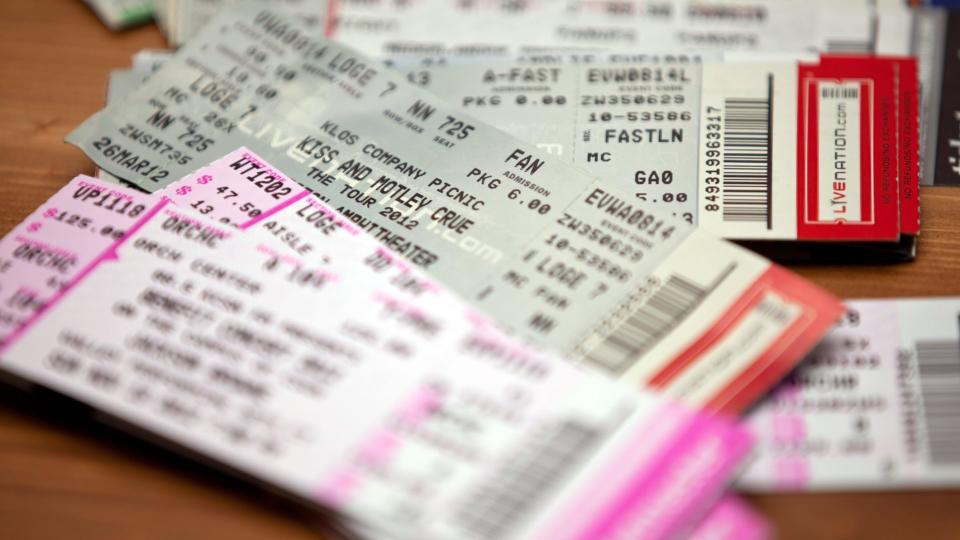What Is ‘Funflation’ And How Does It Affect Your Wallet?

“Funflation” is a recent economic phenomenon that’s heavily impacted consumers. A result of the COVID-19 pandemic, it refers to the current trend of consumers willing to spend large amounts of money on entertainment and experiences despite the rising cost of living and other expenses.
Explore More: Here’s How Much the Definition of Rich Has Changed in Every State
Find Out: How To Get $340 Per Year in Cash Back on Gas and Other Things You Already Buy
What makes funflation unique is that it goes against normal economic trends. Typically, high inflation rates result in consumers setting stricter budgets and spending less money. However, recent trends show consumers are willing to spend thousands of dollars on concert tickets or travel.
The question is, how has the pandemic resulted in this trend? Let’s dig in!
Wealthy people know the best money secrets. Learn how to copy them.
COVID’s Economic Impact
Ultimately, consumers feel they need to make up for lost time from quarantine.
“We were trapped in our homes and once it felt safe to venture out, so many things were more expensive – particularly travel – which we were craving,” said smart shopping expert Trae Bodge. “Funflation is our response to this. We want to get out and socialize, shop and travel. We’ve seen this play out in the ‘Swiftflation’ phenomenon, where people spent thousands of dollars to travel to see Taylor Swift perform.”
Many have associated funflation with Taylor Swift’s Eras Tour, which brought in around $5 billion in revenue. However, while it’s understandable that folks would want to devote their spending to things they may have missed out on during the pandemic, funflation ultimately has negative financial consequences.
While many music fans in particular have felt the urge to get back out into the world, consumers are now beginning to come face to face with the harm of inflation.
Trending Now: I’m a Financial Advisor: Here’s Why My Rich Clients Identify With the Middle Class
“What we’re seeing lately, especially in the wake of some high-profile concert cancellations, is that consumers are feeling the squeeze,” said personal finance expert Erika Kullberg. “It seems like we’re moving beyond that initial post-pandemic response into something a little less celebratory and a little more sensible as consumers across the country feel they can no longer justify expensive ticket prices and fees with the cost of living so consistently high.”
While this habit may have only been envisioned as a temporary concept, it ultimately became a long-term trend. For many consumers, it remained a lingering effect of the pandemic.
“If people didn’t travel, dine out, go to concerts or have much of an entertainment budget at all for quite a while, they may have felt like they could afford to spend more on these things afterward,” said Todd Stearn, founder and CEO of The Money Manual. “And that may have been true, but if they hadn’t been tracking their spending closely, they could have easily exceeded any extra wiggle room they had earned.”
The Bottom Line
Now, funflation is something that consumers should be wary of. It can negatively affect consumers who aren’t properly tracking their spending habits or how it may impact necessary expenses like bills.
“Funflation…could have dire consequences on their finances for a long time to come,” Stearn said. “But if you have a solid budget set up that you adhere to in all your spending, then you know exactly how much you can afford to spend on things like trips, concerts and dining out.”
There are many ways to curb the effects of funflation. Taking part in free or more affordable events and setting a strict entertainment budget are a few ways to save money.
“While it’s important for us to enjoy our lives – perhaps now more than ever – we also need to do so within our financial means,” Bodge said. “Rather than dipping into our savings or going into debt to have fun, we should ideally indulge in more modestly priced activities and save up for more extravagant adventures.”
More From GOBankingRates
I'm a Shopping Expert: 6 Things Retirees Should Never Put In Their Grocery Cart
6 Things to Try This Week if You're Behind on Your Savings Goals
This article originally appeared on GOBankingRates.com: What Is ‘Funflation’ And How Does It Affect Your Wallet?

 Yahoo Finance
Yahoo Finance 